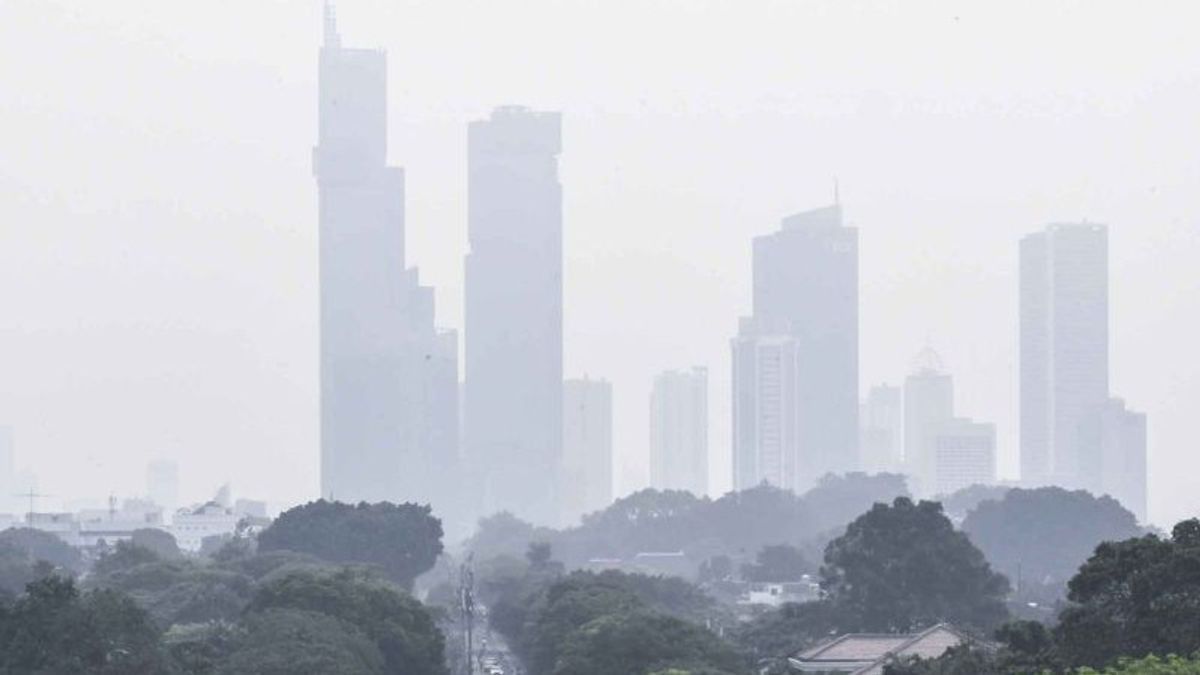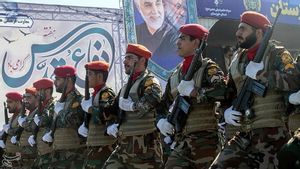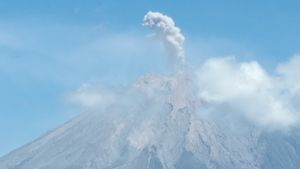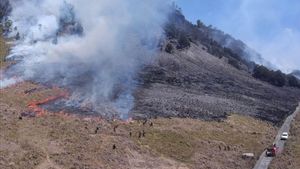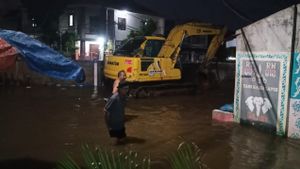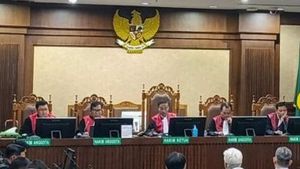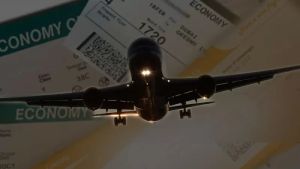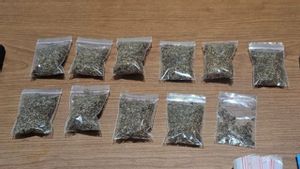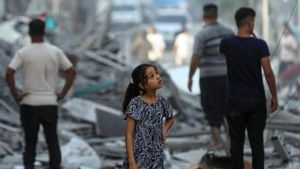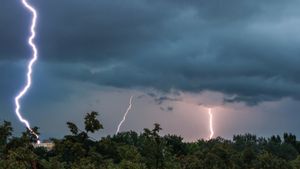JAKARTA - Jakarta still gets the worst air quality predicate on Monday, September 25. Jakarta is ranked sixth on the list of cities with the worst air quality worldwide.
According to data from the IQAir air quality monitoring site, the air quality index (Air Quality Index/AQI) in Jakarta reached 129. This figure is included in the unhealthy category, with air pollution caused by PM 2.5 with a concentration of 47 micrograms per cubic meter.
This unhealthy category has serious consequences, especially for sensitive groups. Air pollution like this can harm the health of vulnerable humans and animals, and can damage plants and environmental aesthetic values.
Another category in air quality measurements is as follows:
- The good category has a PM range of 2.5 between 0 and 50, and does not have a negative effect on the health of humans, animals, plants, or environmental aesthetic values.
- The moderate category has a PM range of 2.5 between 51 and 100, where air quality has no effect on human and animal health, but it can have an impact on sensitive plants and aesthetic value.
- The very unhealthy category has a PM range of 2.5 between 200 to 299, and the air quality here can be detrimental to health in a number of exposed segments of the population.
- Finally, the dangerous category has a PM range of 2.5 between 300 and 500, where air quality in general can harm serious health in the population.
In the global air quality ranking, Jakarta took sixth place with AQI 129. The worst city was Karachi, Pakistan, with AQI 188, followed by Baghdad, Iraq, in second place with the same AQI, namely 188. Third place was occupied by Delhi, India, with AQI 154, followed by Doha, Qatar, in fourth place with AQI 132, and Hanoi, Vietnam, in fifth place with AQI 129.
To overcome this air pollution problem, the Acting Governor of DKI Jakarta, Heru Budi Hartono, has issued Governor's Decree (Kepgub) Number 593 of 2023 concerning the Air Pollution Control Task Force. This policy aims to accelerate the handling of air pollution in Jakarta.
The steps to be taken by the Air Pollution Control Task Force include compiling standard operating procedures (SOP) for the Handling of Air Pollution in DKI Jakarta Province, controlling air pollution from industrial activities, and monitoring periodic air quality conditions and their impact on public health.
In addition, the Air Pollution Control Task Force will implement prevention of polluting sources, both from moving and immovable sources, including sources of disruption and emergency control.
Other measures include mandatory motor vehicle emission tests, rejuvenation of public transportation, development of environmentally friendly transportation, and increasing open spaces as well as tree planting efforts.
SEE ALSO:
Not only that, the participation of the community in improving air quality will also be improved. The DKI Jakarta Provincial Government will also supervise licensing that has the potential to pollute the air and will take action against air pollution violations.
In an effort to overcome this air pollution problem, the DKI Jakarta Provincial Government will continue to evaluate and study the policies that have been implemented, so that they can overcome this problem effectively and on target.
The English, Chinese, Japanese, Arabic, and French versions are automatically generated by the AI. So there may still be inaccuracies in translating, please always see Indonesian as our main language. (system supported by DigitalSiber.id)
